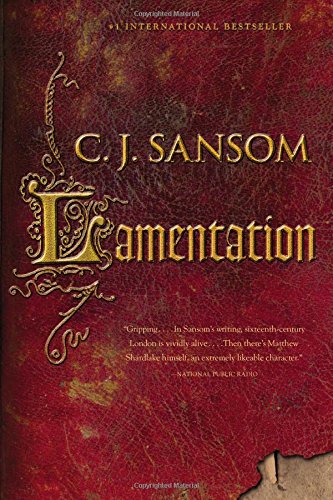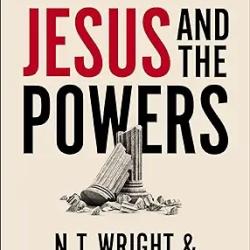Writing historically accurate novels is a lot of work, a lot of research, a lot of painstaking attention to detail. Writing seven such novels in a period of a bit over a decade or so means you must not have another life. C.J. Sansom lives in Sussex and writes massive historical novels (beginning with Dissolution which came out in about 2004 in the U.S.) about a very interesting period in English history— the mid-16th century when Henry the VIII was the Tudor King, a King who broke away from Rome to establish an independent Christian church in England of which he was the head. We know it today as the Church of the Angles, as in Angleterre, as in Anglican. This history has some importance to me personally since I’ve been working as a writer and editor since 1984 for the oldest publishing company in the English speaking world— Cambridge University Press, founded by—- you guessed it, Henry VIII.
This period is especially interesting for Americans because it shows just how entangled religion and politics can be, and just how many problems this raises. It was precisely because of this sort of unholy alliance that there were quite literally heresy hunts, burnings of heretics, torture of Anabaptists for denying transubstantiation and the like, which led people like the Puritans to leave England in the 17th and 18th centuries for America. It was precisely because of these sorts of unholy alliances that the Founding Fathers in America did not want a rerun of what happened in England, where, depending on who was in power, it was either dangerous to be a Catholic or dangerous to be a radical Protestant. More than almost all the other freedoms put together, the Founding Fathers, learning especially from English history, realized freedom of religion was crucial. You cannot legislate people’s religious faith, and if you try you will violate the very spirit and nature of Christianity which has as a Gospel a message of love which must be freely offered and freely received.
Novel seven in the Matthew Shardlake series is called Lamentation, and the title comes not from the Biblical book, but from a little pamphlet that Queen Catherine Parr, the last of Henry’s wives, wrote in favor of the radical notion of justification by grace through faith, and salvation by faith in the Biblical truth. In 16th century England this was indeed a radical, Lutheran idea, and it could get you in the stocks, or in the Tower, or burned at the stake, depending on what you saw as the implications of that belief in terms of allegiance to King and country and what you thought did or didn’t happen in the Mass. Some Anabaptists in that day were indeed plotting against the monarchy and trying to bring it down, and one must remember that Oliver Cromwell had already come and gone and radically changed the landscape when it came to those matters.
The year is 1546, a tumultuous year, a year after England had tried and failed once more to wage war on and in France, and a peace treaty had to be forged. The King was dying, not least of obesity, but apparently also of diabetes which was rotting his legs. The ship of state was teetering on the brink of chaos, and no one knew what would come next, because Henry’s heir, Edward, was a mere boy. As things turned out, he would not reign long, and would be replaced first by one and then by another of Henry’s seed—- Mary Queen of Scots, and then Elizabeth I. It was only the latter person who would bring stability for a considerable period of time.
In this novel we find Matthew Shardlake enlisted by the Queen to find her pamphlet entitled the Lamentation of a Sinner, as it had been stolen from her royal apartments, and could be incendiary if exposed or if it fell into the wrong hands. Indeed it could lead to her death. Interestingly enough, Shardlake, a hunchbacked lawyer in an age when persons who looked like that were thought to be cursed by God, had a deep fondness for this Queen and could not say no to her when she sent him on dangerous missions. It is fair to say she had a fondness or at least pity for him as well. And this mission was indeed dangerous— delving into the plottings and plannings of Anabaptists, not to mention the secret mission of a man named Gurone Bertano sent by the Pope to try to lure Henry and his church back into the Catholic fold. In the last year of Henry’s life, England was in deep debt from the ridiculous failed war with France, and in deep trouble religiously. The plottings in the court in regard to what and who would come next are unveiled in this novel in all their ugliness and intrigue. And the sad fact is, most of what Sansom writes in this novel is absolutely true. It is a tale of Christians of all sorts behaving badly and resorting to plotting and planning and politics to get their way. It should sound rather familiar considering today’s American landscape.
I liked this novel very much, not least because I like Shardlake as a character who has courage and intellect and a good heart, even if sometimes he rushes in where angels might fear to tread. This novel, like many in this series is well over 500 pages, in fact if you count the historical explanations at the end it goes for 643 pages. It is not your average beach reading, but it is absolutely fascinating and well worth the time investment, especially if, as I have done, you’ve already swallowed the previous six novels in the series whole. Yes, there were points in the novel where it lagged a bit, and could have used a bit more editing to speed up the plot. But the insight and descriptions in this novel are excellent, and one feels like one is a part of that age while reading it. I for one would not have wanted to live then and there as a religious man.










